Notes: Words Related to Food | English Olympiad for Class 3 PDF Download
| Table of contents |

|
| 1. Types of Food |

|
| 2. Taste Words |

|
| 3. Cooking Words |

|
| 4. Meals of the Day |

|
| 5. Food Places and Tools |

|
| 6. Healthy and Unhealthy Food |

|
Let's learn some yummy words about food. These words will help you talk about what you eat every day!
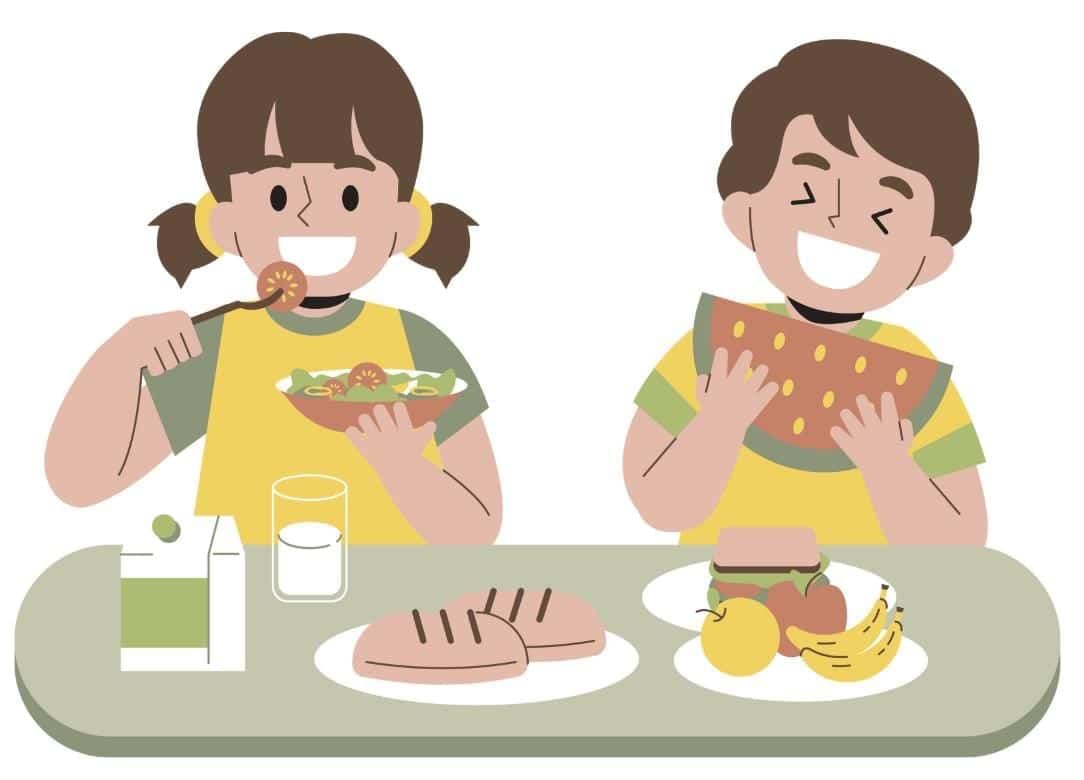
1. Types of Food
Food comes in many types! Here are some words to describe different kinds of food you might eat:
- Fruits: Apple, banana, mango, orange
- Vegetables: Carrot, potato, spinach, tomato
- Grains: Rice, wheat, bread, pasta
- Dairy: Milk, cheese, yoghurt, butter
- Protein: Egg, chicken, fish, beans
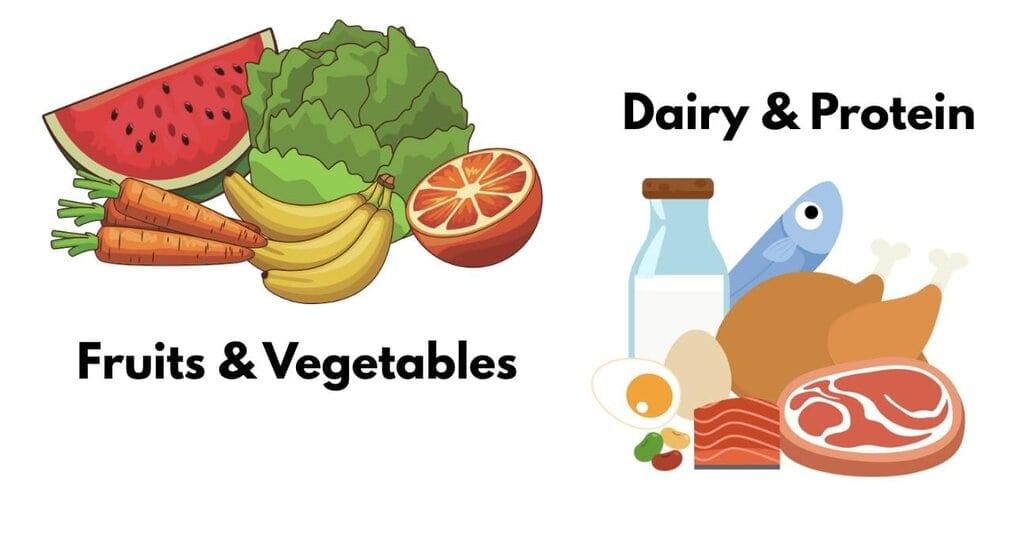
Fun Fact: Did you know a tomato is actually a fruit, not a vegetable?
2. Taste Words
Food can taste different! Use these words to describe how food feels in your mouth:
- Sweet: Like candy or mango
- Sour: Like lemon or tamarind
- Salty: Like chips or popcorn
- Bitter: Like bitter gourd
- Spicy: Like chilli or masala
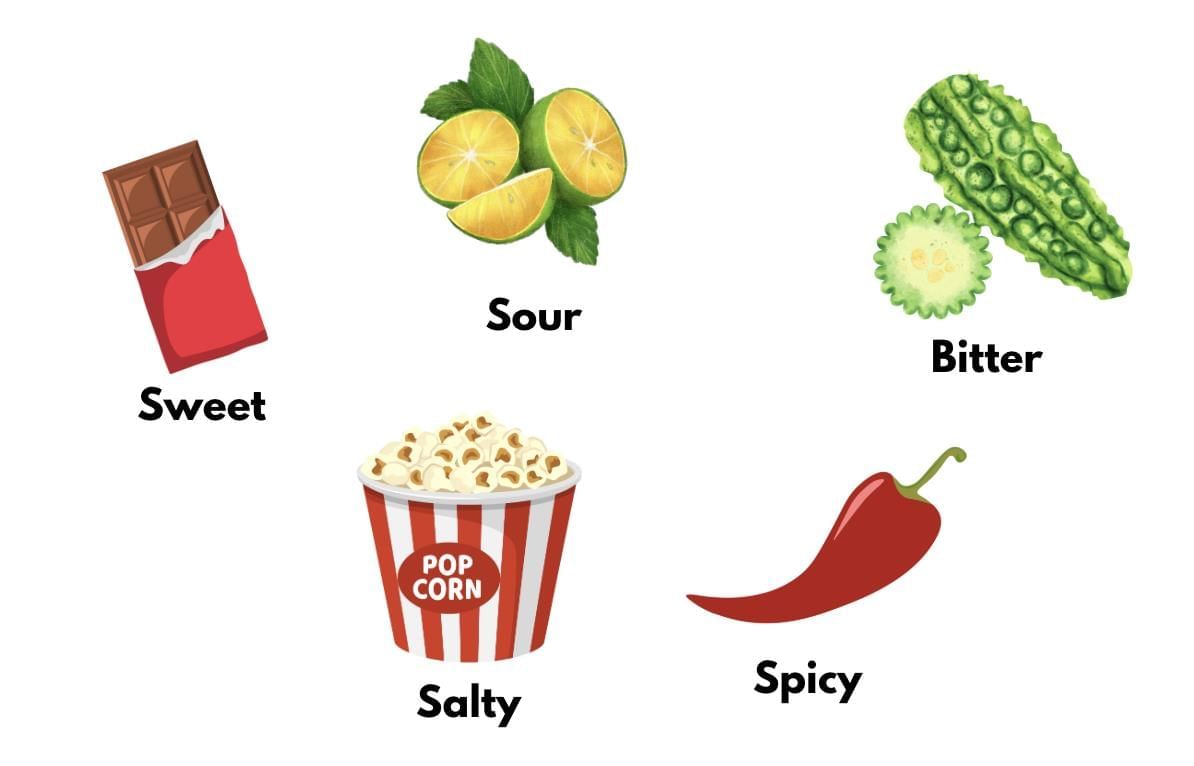
Fun Fact: Your tongue has special spots to taste different flavours!
3. Cooking Words
We use these words when we talk about making food in the kitchen:
- Boil: Cooking food in hot water, like boiling rice
- Fry: Cooking food in oil, like frying puri
- Bake: Cooking in an oven, like baking a cake
- Chop: Cutting food into small pieces, like chopping vegetables
- Mix: Combining foods together, like mixing dough
Fun Fact: Baking bread makes your house smell amazing!
4. Meals of the Day
We eat different meals at different times. Here are the words for them:
- Breakfast: The meal you eat in the morning, like idli or cornflakes
- Lunch: The meal you eat in the afternoon, like rice and dal
- Dinner: The meal you eat at night, like roti and curry
- Snack: A small meal between meals, like biscuits or fruit
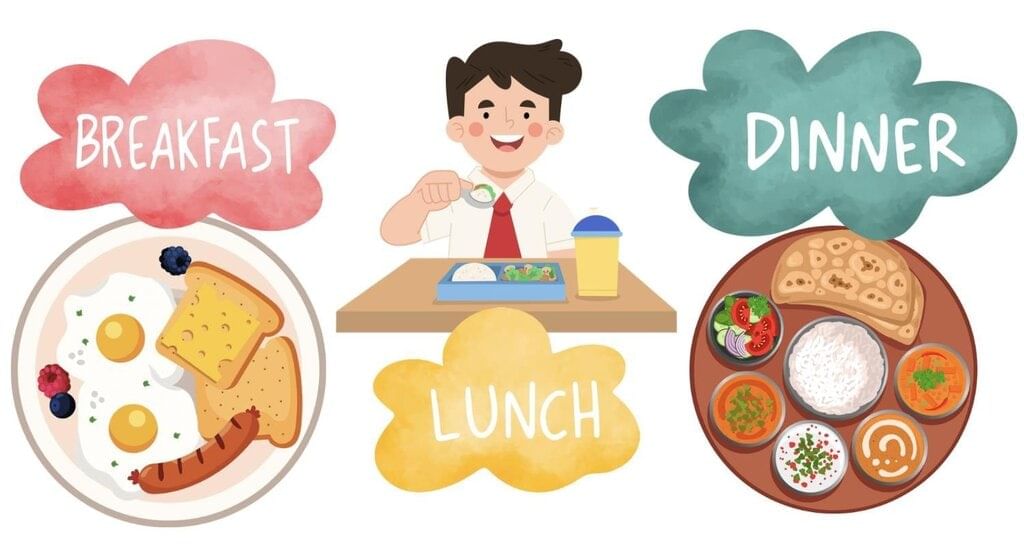
Fun Fact: Some people eat a snack before bed called a "midnight snack"!
5. Food Places and Tools
Where do we eat or make food? What do we use? Let's learn these words:
- Kitchen: The place where food is cooked
- Plate: You put your food on this to eat
- Spoon: You use this to eat soup or dal
- Knife: You use this to cut food
- Fridge: Keeps food cold and fresh
Fun Fact: A fridge keeps your ice cream cold so it doesn't melt!
6. Healthy and Unhealthy Food
Some foods are good for you, and some are not so good. Here are the words:
- Healthy: Fruits, vegetables, and grains make you strong
- Unhealthy: Too much candy or chips can be bad for you
- Balanced diet: Eating a little bit of all good foods
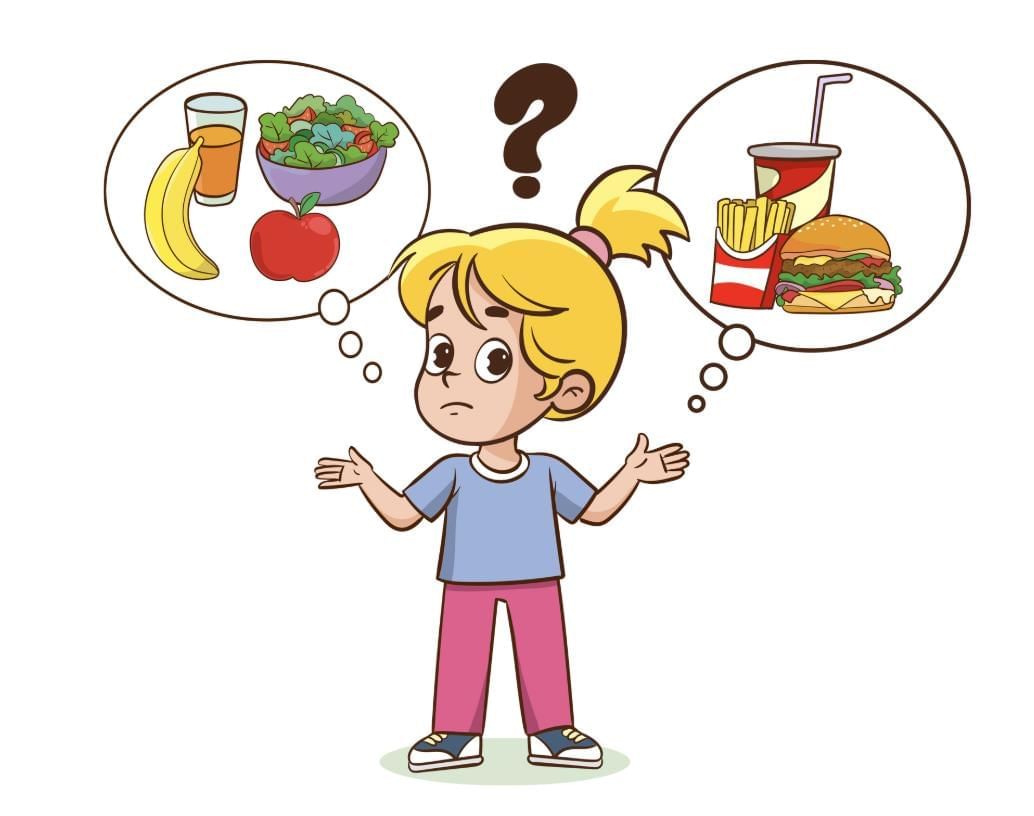
Fun Fact: Eating colourful fruits like oranges and apples keeps you healthy!
|
35 videos|57 docs|97 tests
|
FAQs on Notes: Words Related to Food - English Olympiad for Class 3
| 1. What are the different types of food? |  |
| 2. What are some common taste words used to describe food? |  |
| 3. What cooking words should I know for basic food preparation? |  |
| 4. What are the typical meals of the day? |  |
| 5. How can I differentiate between healthy and unhealthy foods? |  |




















